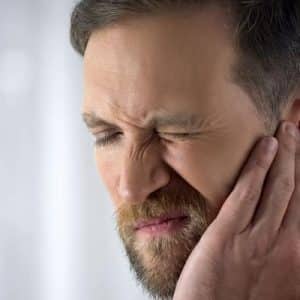Exercise may exacerbate the severity of the health condition

Exercise may exacerbate the severity of the health condition
Exercise may exacerbate the severity of the health condition
One of the most common symptoms of long-term COVID-19 is a tendency to engage in strenuous exercise, which worsens the condition.
The long-term effect of the Corona virus is not only limited to reducing a person's ability to exercise, but broader symptoms often appear in the days following training sessions, and researchers have called this phenomenon “post-exertional malaise” (PEM), which is a relatively strange phenomenon.
Physiological explanations and foundations
According to what was published by the New Atlas website, citing two studies whose results were published in the journals ERJ Open Research and Nature Communications, in most rehabilitation cases, exercise is beneficial, and when a patient suffers from exercise, there are usually clear physiological explanations, as The heart or lungs may not be working well, or a long period of illness may have led to a type of physical deconditioning where the body is generally weakened.
But in many cases of long-term COVID-19, there are no clear signs that explain exercise restrictions. Many patients have been bombarded with traditional tests only to be told they are perfectly fine, but several new studies are beginning to unravel the mystery behind a long period of infection. With the Corona virus.
Although the results do not immediately point to solutions, they confirm that cases of prolonged exercise intolerance associated with the Corona virus have physiological foundations.
Cardiopulmonary exercise test
The most traditional test of a patient's functional physical ability is called cardiopulmonary exercise testing (CPET). The patient is placed on an exercise bike while doctors monitor heart rate, oxygen saturation, and electrocardiogram data.
For many long-term coronavirus patients, CPET investigations return unusually normal results. Despite obvious limitations to exercise such as shortness of breath, these patients often show normal oxygen levels and healthy heart function.
Invasive cardiopulmonary exercise
A team of researchers at Yale University conducted a study on a group of long-term coronavirus patients that included a new CPET trial, known as iCPET or invasive cardiopulmonary exercise test, which is more complex than a regular CPET test. In addition to regular CPET procedures, two pressure-sensing catheters are inserted into the arteries of patients undergoing this test, allowing an additional look at the effect of exercise on muscles and blood vessels.
Systemic oxygen extraction
The results were astonishing, revealing no noticeable problems in the way the heart or lungs work, but they did reveal clear abnormalities in the way the body's tissues take up oxygen. Dysfunction was classified as impaired systemic oxygen extraction pEO2.
Peter Kahn, the study's lead researcher, explained that it was discovered that "despite the fact that the heart was pumping oxygenated blood supplied by the lungs with sufficient amounts of oxygen, the extraction of oxygen from the body's tissues was compromised in patients who showed symptoms of exercise intolerance." Sports after Covid.” But it could not be assumed exactly why or how this happened, as researchers pointed to several possible explanations for this unusual phenomenon.
The study's researchers speculate that "impaired pEO2 could be attributable to failure of non-exercise vascular beds to adequately constrict vasoconstriction or direct muscle blood flow, or insufficient capillary diffusion to mitochondria."
Interesting evidence
A study, recently published in the journal Nature Communications, conducted by a team of scientists at the University of Amsterdam, provides interesting clues about what might be happening. The answer appears to have something to do with mitochondria, the tiny power plants that energize individual cells.
The University of Amsterdam's very unique trial included a group of long-term coronavirus patients and a healthy control group. Study participants completed a strenuous cycling test, providing blood and muscle tissue samples one week before and one day after the test.
Abnormalities in muscle tissue
Rob West, a researcher involved in the study, said that poor metabolism and signs of significant muscle damage were discovered in Covid patients for a long period after strenuous exercise. Perhaps most importantly, the results revealed that strenuous exercise actually caused mitochondrial dysfunction in muscle cells, which may explain why long-Covid patients feel worse the day after physical exertion.
“We saw different abnormalities in the patients’ muscle tissue,” Foust explains. “At the cellular level, we saw that muscle mitochondria, also known as the cell’s power factories, function less well and produce less energy from the cells.”
Mitochondrial dysfunction
Mitochondrial dysfunction has previously been hypothesized as a possible explanation for some of the coronavirus' long-term symptoms, but there remains a mystery as to exactly how SARS-CoV-2 infection causes mitochondrial dysfunction. Although exercise is always considered beneficial for mitochondrial function, the rule does not apply to [long Covid] patients, Foust noted. Obviously, muscle damage and resulting immune cell infiltration can reduce mitochondrial function as well
Light physical exertion
Brent Appleman, a co-researcher in the Amsterdam study, says that long-term Covid patients should be careful not to exert themselves beyond their limits. It is now increasingly clear that excessive effort is harmful, and the reason is tentatively understood.
“Concretely, these patients [recovering from long-term Covid] can be advised to maintain their physical limits and not exceed them, as they can do light effort that does not aggravate the complaints,” Appleman says, noting that “walking is good or riding an electric bike to improve the condition.” “Health and maintaining some physical fitness, and every person must keep in mind that what suits others may be exhausting for him.”





